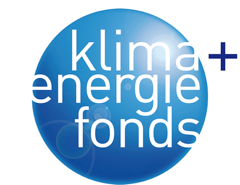
ClimTrans2050 in a nutshell
The Paris agreement substantiates the immediate need for action to mitigate climate change. The design and development of national climate strategies calls for modelling tools that are able to address long term transformation pathways. The aim of the ClimTrans2050 project was to prepare a research plan for an open source model, that will i) outline emission reduction paths and costs for Austria; and ii) help Austria attain a 80-95% reduction in greenhouse gas (GHG) emissions by 2050. The project also supports Austrian decision makers by proposing a modeling framework for an improved understanding of the social aspects of climate change.
ClimTrans2050 is unique in two ways: the research plan for the proposed open source i) follows the innovative approach of functionalities to be satisfied from the perspective of wellbeing in a low carbon world; and ii) provides a consistent embedding of an Austria-focused open source model in a global emissions and long-term warming context.
The key element of the modelling framework developed and proposed in this research plan is its focus on wellbeing-related functionalities, ranging from shelter through to mobility (i.e. more precisely access to persons and goods), as the ultimate goals of economic activity. Functionalities (e.g. nutrition, shelter, access to goods, services and people) as understood in the context of this research plan are defined as the outcome of the interaction of stocks (e.g. buildings and machinery) and flows (e.g. energy and materials). In addition to end-use functionalities (as relevant for the wellbeing of persons) the concept implicitly also includes intermediary functionalities for reproducibles (as goods and services).
Transformation processes require a deep understanding of the structures linking the physical, economic and institutional layers. We therefore start from functionalities and highlight the role of stocks and flows for providing them. Establishing an open source model for the very long run, and especially for changes in our complex socio-technological system, thus requires a more explicit representation of the role of technologies, given that these determine the quality of an economy's capital stock.
The ClimTrans2050 Research Plan provides
- coherent and understandable modelling guidelines that put the focus on functionalities (relating to shelter, access to persons, services and goods, nutrition, etc.) and that stress the interrelationship of stocks and flows in order to provide the functionalities;
- a framework for a deepened structural approach to modelling the Austrian emissions system along a three tier approach that deliberately differentiates between the physical, the economic and the institutional dimensions;
- a modelling framework that allows analyzing non-incremental change and transition processes;
- guidance for next steps of research activities following the three tier approach, like modelling feedbacks within the tiers and interactions between them;
- a coherent overall setting that allows to integrate the research activities in a stepwise manner, ultimately arriving at an open-source model that fully covers the Austrian emission inventory in relation to the three tiers.




